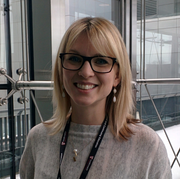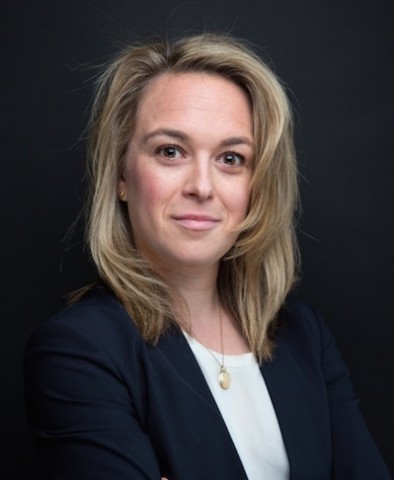The practice of medicine involves inherent ambiguity. As physicians we seek to provide “best” practice for our patients, setting black-and-white standards in a greyscale space of clinical care. We develop simplified algorithms to aid us in navigating medicine’s complexity and uncertainty—tools that are evaluated in research studies and honed through quality improvement initiatives. With the drive to standardize care comes a challenge for medical education: How can we train physicians to use these evidence-based tools, while being comfortable in the face of uncertainty and thinking critically about how they integrate them into practice?
Standardizing clinical practice has long been a goal of our healthcare institutions, and much progress has been made with the rise of checklists and protocols that have been linked to improved mortality rates on a global scale. Another success story in standardization is in the realm of physician handoffs. We have both proudly become affiliated with the “I-PASS” initiative, a bundled curriculum designed to standardize the handoff process—using a mnemonic “I-PASS”, structured documentation and team communication training—and associated with a significant reduction in medical errors in the inpatient setting.
As standardized tools are implemented more broadly in efforts to ensure best practice and improve patient outcomes, we are calling for a renewed focus on the user of these tools—the physician who cares for patients in complex systems where uncertainty is inherent. A substantial body of literature has suggested that tolerance of ambiguity is an important competency for physicians, linking it to effective communication, resource use, and lower rates of burnout. We need to ensure that our standardized tools do not emphasize a reductionist approach, giving a false (and unrealistic) sense of certainty. We need to help our trainees recognize the interdependence of the medical issues that manifest in their patients, where small clinical changes can have unpredictable and amplified impact (for a nice introduction to the features of complex systems in clinical practice, see this article). And we need to ensure our training programs focus on reasoning through complexity and coping with uncertainty, so that physicians can effectively use the information that these tools help us to collect.
How do we prepare future physicians to incorporate standardized handover templates and surgical checklists into their daily work, thoughtfully and intentionally—as a scaffold for clinical judgment rather than a crutch? The onus is on medical educators to develop: 1) educational strategies to foster competence in managing complexity; 2) evaluations with meaningful outcomes in clinical behaviour and quality of care (scaling Kirkpatrick’s pyramid!; and 3) assessments capturing the complexity of clinical practice.
As alumni of the Program for Educators in Health Professions and the Leading Innovations in Health Care Education courses, we recognize the principles taught in the Harvard Macy Institute in striving for these goals. We ask the community to generate a dialogue—how can we best educate physicians to navigate the complexity and uncertainty of clinical care? What are some specific strategies you have tried?
*Image credit with permission Malcom Locker.
Authors:

Kathleen Huth, MD, FRCPC is a 2016 Harvard Macy Scholar, currently in her second year of the Master of Medical Sciences in Medical Education program at Harvard Medical School. She is supported by the Robert Maudsley Fellowship for Studies in Medical Education through the Royal College of Physicians and Surgeons of Canada. Katie is a lecturer in the Department of Pediatrics at the University of Ottawa, Canada and has a special interest in resident education in team communication, particularly in the care of children with medical complexity.

Arabella Simpkin, MA BMBCh MRCPCH MMSc is a 2015 Harvard Macy Scholar and recent graduate from the Master of Medical Sciences in Medical Education program at Harvard Medical School. She is a pediatrician, gaining her medical degree from the University of Oxford in 2006. Arabella currently holds a faculty position in the Department of Medicine at Massachusetts General Hospital where she is involved in the creation of a Center for Educational Innovation and Scholarship. Her research passion is in professional development, in particular studying the attributes of resilience and tolerance of uncertainty.
Huth Simpkin
Kathleen Huth, MD, FRCPC is a 2016 Harvard Macy Scholar, currently in her second year of the Master of Medical Sciences in Medical Education program at Harvard Medical School. She is supported by the Robert Maudsley Fellowship for Studies in Medical Education through the Royal College of Physicians and Surgeons of Canada. Katie is a lecturer in the Department of Pediatrics at the University of Ottawa, Canada and has a special interest in resident education in team communication, particularly in the care of children with medical complexity.
Arabella Simpkin, MA BMBCh MRCPCH MMSc is a 2015 Harvard Macy Scholar and recent graduate from the Master of Medical Sciences in Medical Education program at Harvard Medical School. She is a pediatrician, gaining her medical degree from the University of Oxford in 2006. Arabella currently holds a faculty position in the Department of Medicine at Massachusetts General Hospital where she is involved in the creation of a Center for Educational Innovation and Scholarship. Her research passion is in professional development, in particular studying the attributes of resilience and tolerance of uncertainty.

